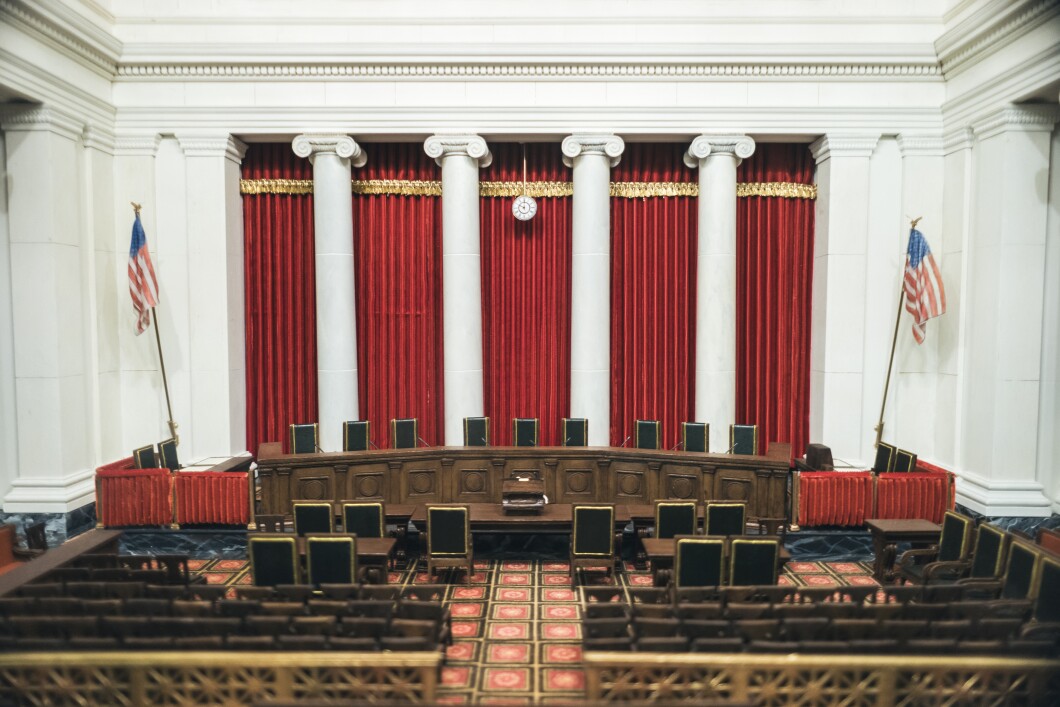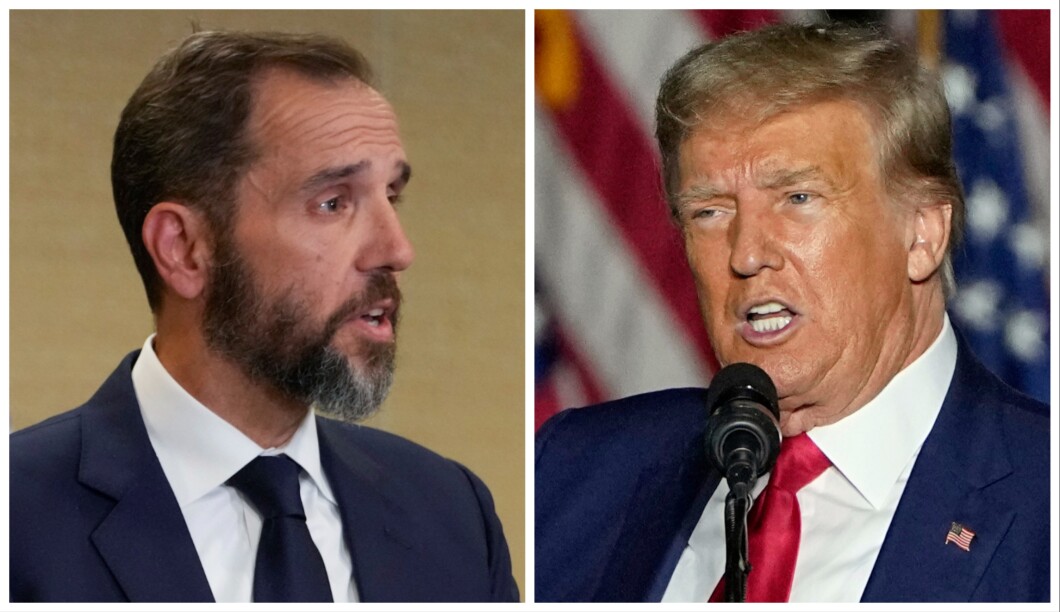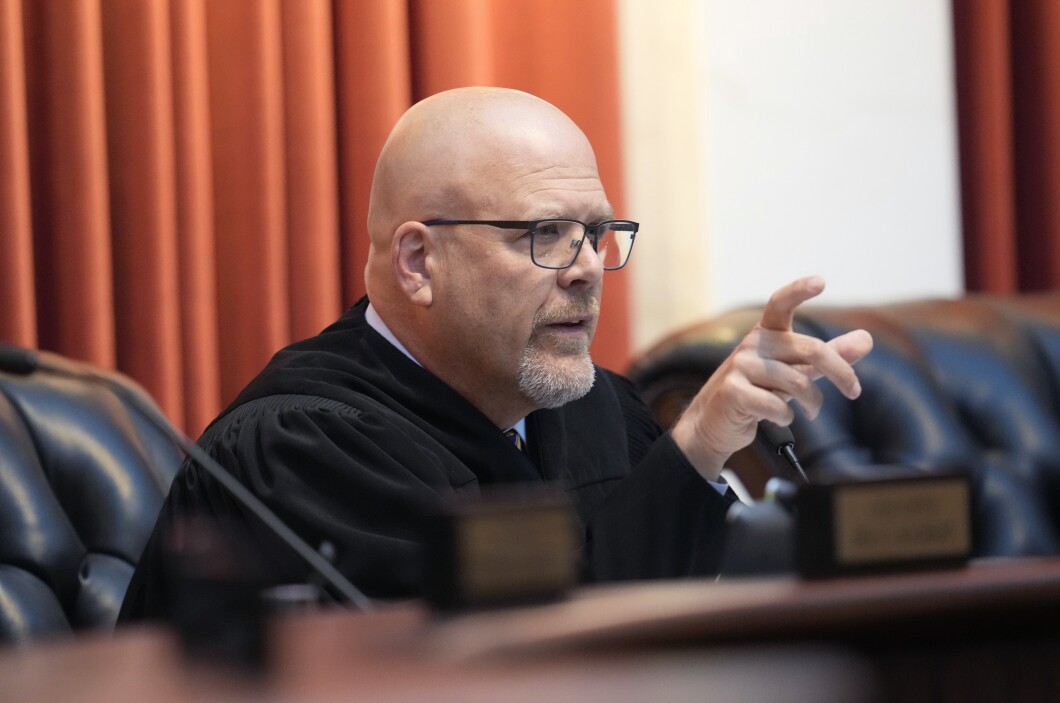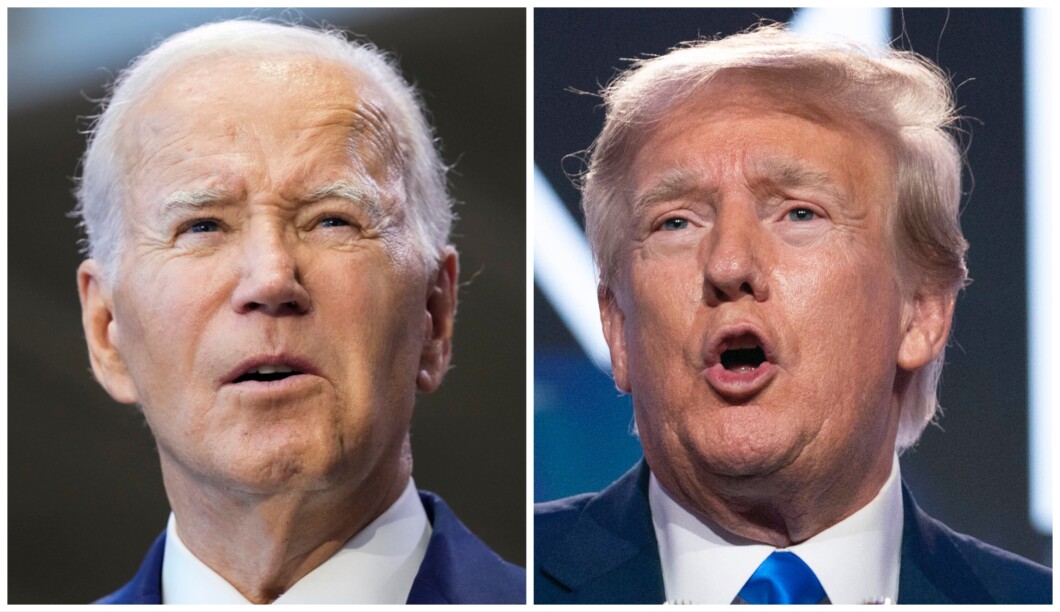
Twenty-three years ago, the United States endured one of the strangest presidential elections in history when the Supreme Court decided who would be the victor after more than a month of uncertainty. Now, the 2024 election could look similar in several ways and possibly be even more chaotic.
The so-called hanging chads election of 2000 between George W. Bush and Al Gore was handled by recounting small bits of cardboard attached to incompletely hole-punched Florida ballots. The high court ultimately ruled Florida’s recount should be stopped on equal protection grounds and gave the victory to Bush despite Gore winning the popular vote.
SHADOW OF DOUBT: HOW 2020 ELECTION CHALLENGES IN ARIZONA AND GEORGIA ENDED

Fast-forward 20 years to the post-2020 election months that were plagued by dissonant claims of “election fraud” by former President Donald Trump and his allies, which resulted in an unprecedented riot at the Capitol on Jan. 6. Around that time, the Supreme Court was denying numerous bids to litigate the outcome of President Joe Biden‘s win, as U.S. intelligence and Justice Department officials swore that no fraud altered the results of the election.
The forthcoming 2024 election could prompt the Supreme Court to make landscape-altering decisions even before the potential for post-Election Day challenges like the Bush v. Gore case.
Here are ways the high court could act between now and the 2025 inauguration:
Ruling on Trump’s immunity claims

Trump is facing four criminal indictments levying a combined total of 91 charges, which he says he is “immune” to because of his prior role as commander in chief. Special counsel Jack Smith responded this week by tapping the high court to skip over a federal appellate court and asked the nine justices directly whether his immunity claims stand up to legal muster.
“This case presents a fundamental question at the heart of our democracy: whether a former President is absolutely immune from federal prosecution for crimes committed while in office or is constitutionally protected from federal prosecution when he has been impeached but not convicted before the criminal proceedings begin,” Smith wrote in filing his case that charges Trump with four felonies related to an effort to subvert the 2020 election results.
Smith said Trump’s appeal of a district court’s ruling that held he wasn’t immune from the indictment effectively “suspends the trial of the charges against him.” U.S. District Judge Tanya Chutkan, who ruled against Trump’s immunity claims, has slated the trial to begin on March 4, the day before the major primary voting day known as Super Tuesday.
The Supreme Court has already asked Trump to respond to Smith’s filing by Dec. 20, and the high court’s next move could be game-changing. Justices could agree to take up the case, side with Chutkan’s previous ruling, and keep the trial on track for March 4. On the other hand, an unlikely siding with Trump could kill the entire case Smith has brought against him.
“There was the Nixon precedent that Smith alluded to, and I think it’s the best precedent for leapfrogging the appeals court,” Carl Tobias, a law professor at the University of Richmond, told the Washington Examiner, adding that the “the court did it then, and I think the court could do it now.”
Smith’s charges against Trump have been a double-edged sword. The former president has said the indictments are an election subversion effort to keep him out of the Oval Office despite the charges galvanizing his base and leading him to soar over alternative Republican candidates in the primary season, elevating the odds for a likely rematch between Biden and Trump.
Some polls have recorded GOP voters stating that they do not care about the outcome of Trump’s criminal trials, while others say it will influence their vote in the election. In a Reuters-Ipsos poll released Tuesday, some 31% of Republicans said they would not vote for Trump if he were convicted of a felony crime, raising the stakes for Trump to take every opportunity to avoid a trial before Election Day.
14th Amendment challenges to Trump’s ballot eligibility

Another way the Supreme Court could affect the 2024 election is through the litany of so-called insurrection clause challenges to Trump’s eligibility to appear on state ballots.
The crux of these election lawsuits alleges that Section 3 of the 14th Amendment provides that public officials cannot hold future federal office if they have engaged in “insurrection,” with voter plaintiffs pointing to Trump’s alleged role in stirring the Jan. 6 riot as their main cause for action.
One case that has ascended the furthest in state court comes from Colorado, where members of the state Supreme Court on Dec. 6 weighed a decision by a lower court judge to allow Trump to remain on the ballot but simultaneously held Trump engaged in insurrection through “incitement.”
Because there’s no legal consensus on the right timing to challenge Trump’s eligibility, it’s unclear whether such a lawsuit should be decided before the Republican primaries that begin in 2024, before Election Day in November next year, or before Trump’s possible inauguration in 2025. Justice William Hood III told Trump attorney Scott Gessler that “by failing to resolve this issue on the merits now, we create the potential for chaos in January of 2025.”
There are 22 states with pending litigation seeking to keep his name off of election ballots, though numerous legal experts have suggested the constitutionality of these challenges is questionable.
Post-election challenges if the race is too close to call

The close-race circumstances that led to the post-election challenge that was Bush v. Gore have not occurred in the 23 years since the infamous case.
Although other states, such as Oregon and New Mexico, remained too close to call for some days after the Nov. 7, 2000, election, the focus of the lawsuit ultimately focused on a margin of victory gap in Florida that appeared to be roughly 0.01%, which triggered a machine recount in the Sunshine State. That means Bush’s lead in the state stood at 327 votes out of 6 million.
What’s more is that despite Trump’s notorious claims of fraud in the 2020 election, the closest results that year happened in Georgia, with Biden leading by 0.2 percentage points, which was about 12,000 votes more than Trump.
The ultimate risk with the 2024 election could be the sheer amount of voter fatigue for either Biden or Trump coupled with third-party options like Robert F. Kennedy Jr., who, according to some polls, is causing problems for both leading party candidates heading into Election Day.
Some election and legal experts have suggested the idea that 2024’s crowded field of third-party candidates, some of whom have yet to declare candidacy, could lead to a “contingent election,” when no candidate emerges with a 270-vote Electoral College majority.
In that event, “the threat to a peaceful and lawful transition of power level could quickly match, and then surpass, what the country endured in January 2021,” according to a Lawfare report by Beau Tremitiere and Aisha Woodward.
CLICK HERE TO READ MORE FROM THE WASHINGTON EXAMINER
The co-authors explained that states with faithless elector laws, which require electors to vote for their pledged candidates, coupled with lawsuits, could lead to “contentious” challenges that could “trigger objections when Congress convenes in joint session on Jan. 6 to count electoral votes, complicating that process and inviting attempts to abuse it.”
Tobias told the Washington Examiner it “could be a huge train wreck in a lot of ways that we can’t even anticipate” but added he believes the “Supreme Court will also intend to stay above the fray if they can.”




